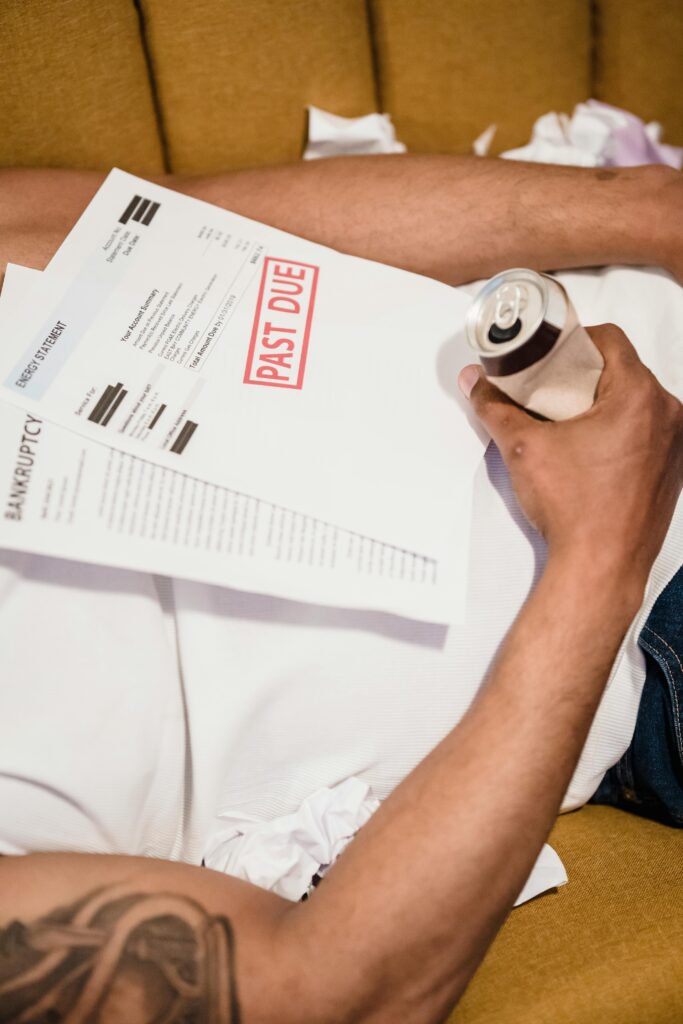
Chapter 7 Bankruptcy
The most common discharged debts include:
- Credit cards
- Medical bills
- Payday loans
- Past due federal income taxes
- Judgments filed against you in a court of law
- Old utility, cable, and cell phone bills
- Balances remaining after broken leases, foreclosures, and repossessions
You can also take advantage of the fresh start of a Chapter 7 bankruptcy to legally terminate contracts, such as mortgages, car loans, leases, and rent-to-own agreements. This can prove helpful if the item you financed is now worth less than the balance remaining on the contract. You will not have to repay the remaining balance but will most likely have to surrender the collateral.
By taking advantage of the generous federal and state bankruptcy exemptions better than 95% of our clients don’t lose any of their property to the Trustee. You can keep your house and car as long as you continue to make the payments on time.
The general rule is that only debtors whose gross income is below the median income level per household size qualify to file for Chapter 7 bankruptcy, though there are a couple of important exceptions. Determining whether you qualify to file for Chapter 7 bankruptcy is a complicated calculation that usually requires the expertise of a knowledgeable bankruptcy attorney.
You should consider Chapter 7 Bankruptcy if…
… 1) you are saddled with debts that would take you more than 5 years to pay off; 2) you are quickly draining your retirement or savings accounts just to stay afloat; 3) you are obligated under a long-term, money-losing contract; or 4) you personally guaranteed business loans that you can no longer afford to repay.
The benefits of Chapter 7 Bankruptcy are…
…you can eliminate most unsecured debts within 4 months of filing, legally terminate unfavorable contracts and stop creditors from harassing you – all without having to report forgiven debt as income on your tax return. Most people do not lose any property they want to keep.
The consequences of Chapter 7 Bankruptcy are…
…that initially it will have a negative impact on your credit score. The bankruptcy trustee can seize any valuable assets that are not exempt. If you are behind on payments for any secured debt like your mortgage or car loan the lender can get the court’s permission to seize the collateral.
The cost of a Chapter 7 Bankruptcy with our law firm will be a flat fee based on the complexity of your case and on your location. We strive to keep the attorney fees for our clients’ Chapter 7 bankruptcy cases as low as possible. After we learn the specifics of your situation, we’ll then be able to determine our required fees to file and complete your Chapter 7 bankruptcy. All costs will be spelled out for you during your free initial consultation before you commit to anything. The court charges a $338 filing fee in addition to attorney fees. However, you may qualify for a fee waiver from the court which may save you from having to pay any filing fees at all.

How Do I File Chapter 7 Bankruptcy?
Filing for Chapter 7 bankruptcy in California starts with a good bankruptcy attorney. Our law firm will be completing all of the many forms required to complete your bankruptcy. You will need to have credit counseling. Then we can move forward with filing your Petition with the court. You may qualify for a fee waiver from the court. Otherwise, you will be charged $338 by the court and you will have to provide all pertinent information regarding income, assets, debts, and expenses. You will also be required to provide all information about holdings including savings accounts and more.
What Protection Am I Afforded?
The great thing about Chapter 7 in California is that you will be protected from your creditors the moment we file. This means that they will not be able to pursue collecting debt from you. Garnishments will stop. This is called an automatic stay. Any liens, garnishments, or phone calls will be halted during the proceedings.
What Happens After Filing Bankruptcy?
When you file for Chapter 7 in California, there will be appointed a Bankruptcy Trustee appointed to your case. They will review all filings to make sure you are filing the proper documents. They will also determine if it is feasible to sell off any of your property to settle debts. You will also be responsible to go to a creditor’s meeting. This is where you will meet with the Trustee and any creditors. Any non-exempt property will be revealed and you will be expected to either forfeit the property or produce the money it is worth.
What Debts Will Be Discharged?
Under the rules of Chapter 7 bankruptcy in California, you will be allowed to discharge any unsecured debt and some secured debts which are considered to be exempt. The discharge will happen a few months after the meeting of the creditors. Loans like car loans and home loans typically remain after the discharge.
